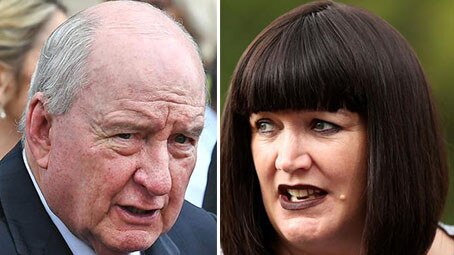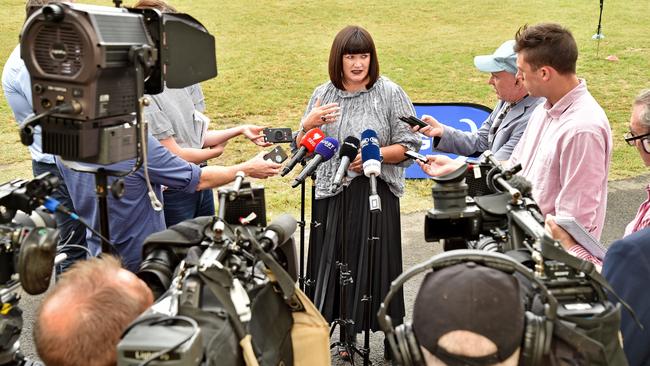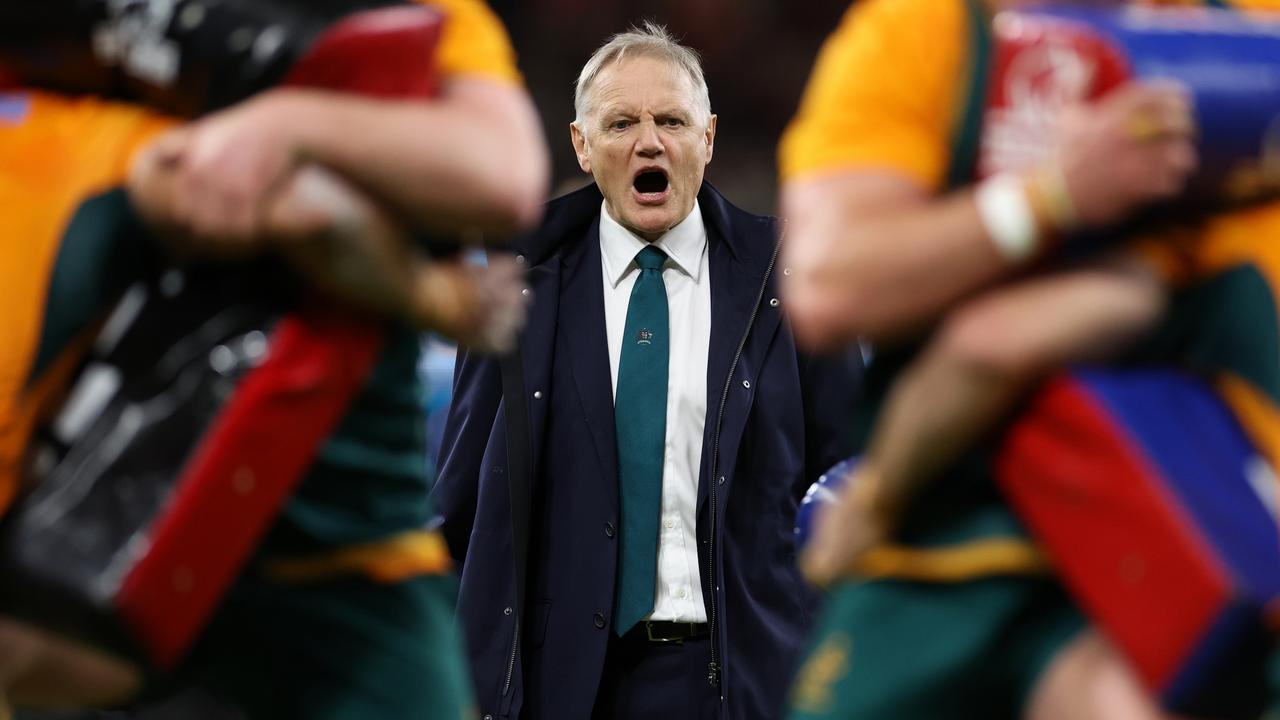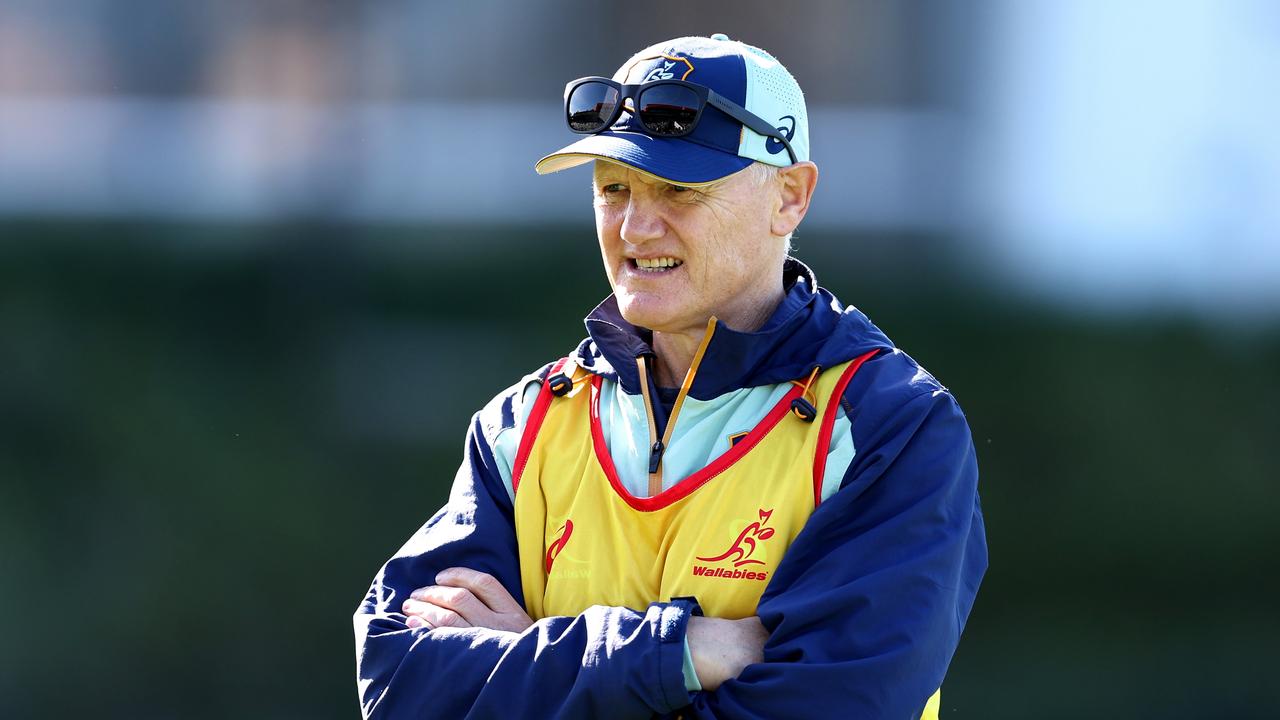Time is not on Rugby Australia’s side to turn the tide
I met with the rugby boss this week. It was, I hope, a courteous meeting. Here’s what happened.

I wrote last week, not for the first time, about what can undeniably be called the appalling state of rugby administration in Australia.
Readers are constantly writing to me and asking how things can change. Your comments are withering.
Charles wrote: “Rugby Australia sold their soul to the corporates. It’s no longer family friendly. Little access and too expensive for families to go to the big games.”
Lee wrote: “Simply put, the current Rugby Board’s business model is flawed. The fact that the Board persists on its current path is a clear acknowledgment of the Board’s lack of business acumen in the sphere of sports management … and let’s be clear … for a sport to survive, engage the community and grow at the national level, in these modern times, it has to be run as a business not as a ‘an old boys’ club’ wrapped around ‘it’s who you know, not what you know’.”
When you look at the composition of these boards it’s not possible to believe that they don’t know the mess we are in, so you can only assume they don’t know what to do.
The chairman of Rugby Australia, Cameron Clyne, is a former banker. Brett Robinson is deputy chairman. He played for Australia. So did Paul McLean, a magnificent player for Australia who is a director; Phil Waugh, no one was more courageous in his playing for NSW and Australia; Tony Shaw, the president is a legend within the game.
They constitute a majority on the board. Do they not understand what the public see and know?

In NSW the chairman, Roger Davis, is a former rugby international, outstanding businessman and Rhodes Scholar.
The president Marty Roebuck was part of a World Cup-winning side; Al Baxter, the vice-president is a quality person and also an international; Kerry Chikarovski is a former Liberal opposition leader in NSW. She is passionate about sport and knows her rugby.
David Giffin is a former vice-captain of Australia, with 49 international caps.
How is it these people don’t see what everybody else sees and knows?
I met with Raelene Castle this week. It was, I hope, a courteous meeting. She conducted herself responsibly and quite persuasively.
There was a lot of theory of administration and promises of what Rugby Australia was doing.
I indicated to her that I saw little evidence of this and my readers, every week, confirm my concerns.
For example, I asked her how on Earth you could grow the game when people can’t see the game? We have no free-to-air broadcasting deal for Super Rugby.
I asked her how it was possible that players could be signed on lucrative contracts, some for five years, and still get $10,000 when they lose a Test.
I asked her about the Super Rugby model — a fortune spent on airfares and accommodation to play in a competition when that money could be better spent on grassroots rugby.
I made the point that, in my view, rugby in South Africa, Argentina and Japan was not the responsibility of Australian rugby. I also made the point that when Queensland and NSW were the top provincial sides in world rugby, we had a trans-Tasman competition.
She told me something about how they had done “modelling” and a trans-Tasman competition would not work. Such a response is par for the course. You get the impression that if you said it was Thursday, RA would say it was Friday!
I pointed out that in sport, as in business, there is only one barometer of achievement — the scoreboard.
I made the point that at every level the scoreboard represents failure.
At schoolboy level, to put it simply, we get thumped. The Australian Schools Rugby Union has, for some time, been a sinking ship.
To be fair, RA has cut its funding, preferring to fund its own provincial academies and thereby taking control of talent identification.
The one hope for which RA must be given credit is that someone has made Peter Hewat the coach of the Australian under-18s side. At least this year’s team will be well selected and well coached.
But back to the scoreboard.
Raelene Castle listened intently and, as I have said, courteously. But I tried to impress upon her that the most recent television audience statistics have Super Rugby at the bottom of the birdcage when compared to other codes.
Rugby league and AFL have almost 500,000 free-to-air and cable viewers, on average, per match.
Super Rugby bounces between 23,000 average viewers for overseas games and 50,000 for games played in Australia.
But in capital cities, even soccer’s A-League has more average viewers per match.
But in addition to poor television audiences, match attendance numbers are falling.
In 2017, Queensland Reds averaged a handful over 15,000 spectators a game; in 2018 that average has dropped to 12,101.
Last week, when the Reds hosted the Rebels, just 10,745 went through the gates.
Raelene Castle talked about RA recording a profit in the most recent year.
Am I the only one to wonder where this profit is coming from given the falling television audiences and dwindling match attendances?
Is the governing body cutting back some of its 150-strong staff?
I thought it best not to remind Raelene Castle of what she said last April,: “Rugby Australia does all it can to support grassroots rugby … if we have a spare $10 million floating around we’ll be in a position to invest back into grassroots grants.”
I hope she stands by her promise. The clubs are working hard to develop the next generation of Wallabies.
I asked Raelene Castle whether she believed that the quality of rugby this year and the results in Super Rugby were better than those of last year. The rugby punter would think we have gone backwards.
The Waratahs’ performance last week in Newcastle, against the Sunwolves, was a disaster.
This business about resting players or rotating players is an absolute nonsense. Players want to play. Or are our fitness levels so bad that we can’t go the distance in a calendar year by doing what we are paid to do?
The metaphor of the problems on the playing field was in full view in Queensland where the visiting Melbourne Rebels flogged the Queensland Reds.
Two former Reds, Will Genia and Quade Cooper, were responsible for the humiliation of the coach who had turned his back on them.
Cooper is currently the best No 10 in the country. His form demands he be part of the Rugby World Cup, but that will depend on the selectors.
I asked Raelene Castle how these selectors were chosen.
There was some vague reference to a specialist committee who chooses these people!
An AGM is coming up. I reminded her that the so-called Nominations Committee has been reduced to two people: one the chairman and the other already on the board.
This means, as I have said many times, the rugby tent has a lock on it.
Cameron Clyne, the chairman, also runs the Nominations Committee.
You don’t need to be too smart to know that someone with a divergent view wouldn’t be let into the tent.
That may symbolise why there is no progress.
If people are appointed because the chairman is comfortable with them and there is no challenge to existing systems, structures or philosophies, then we will go on treading water or marking time.
The trouble is the water is getting deeper and time is not on our side.


